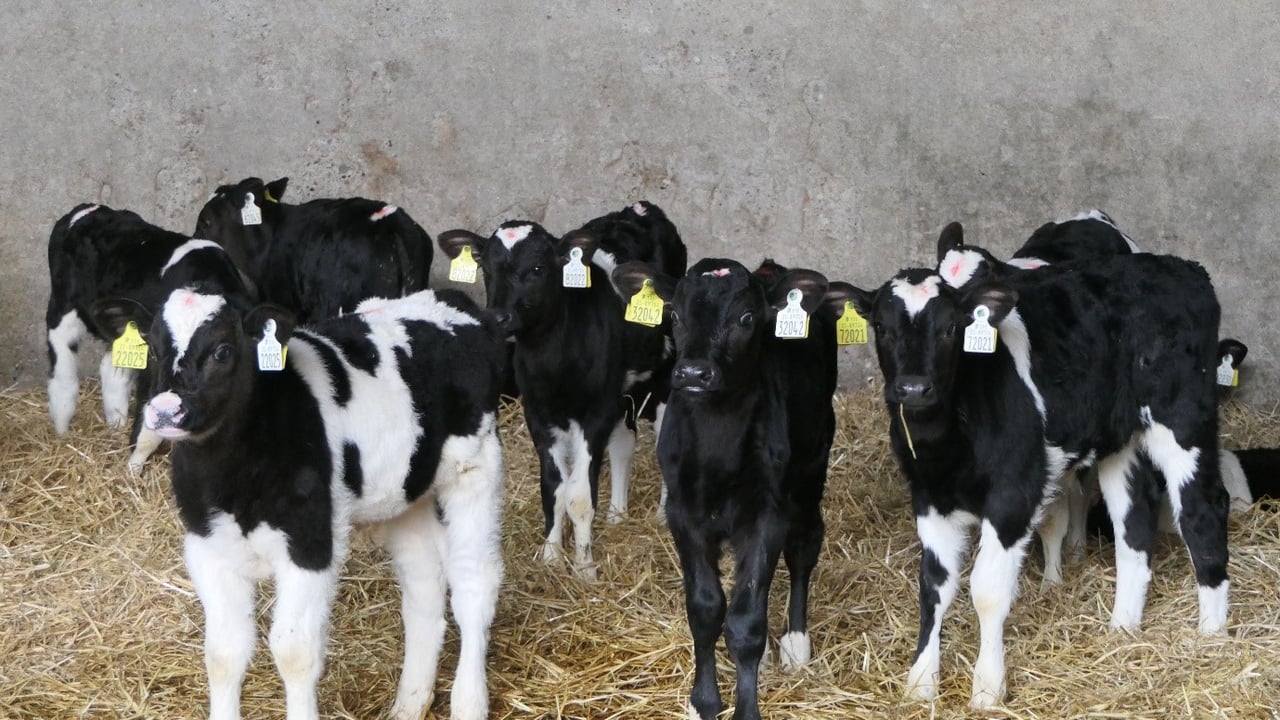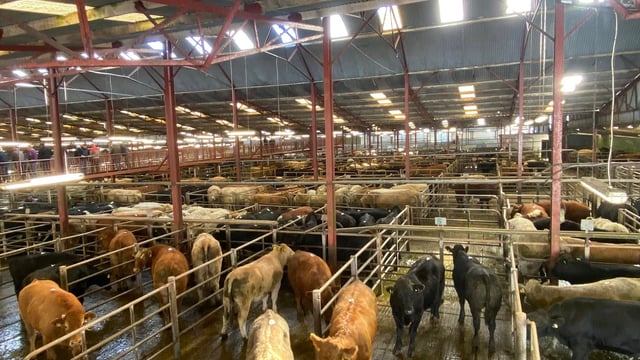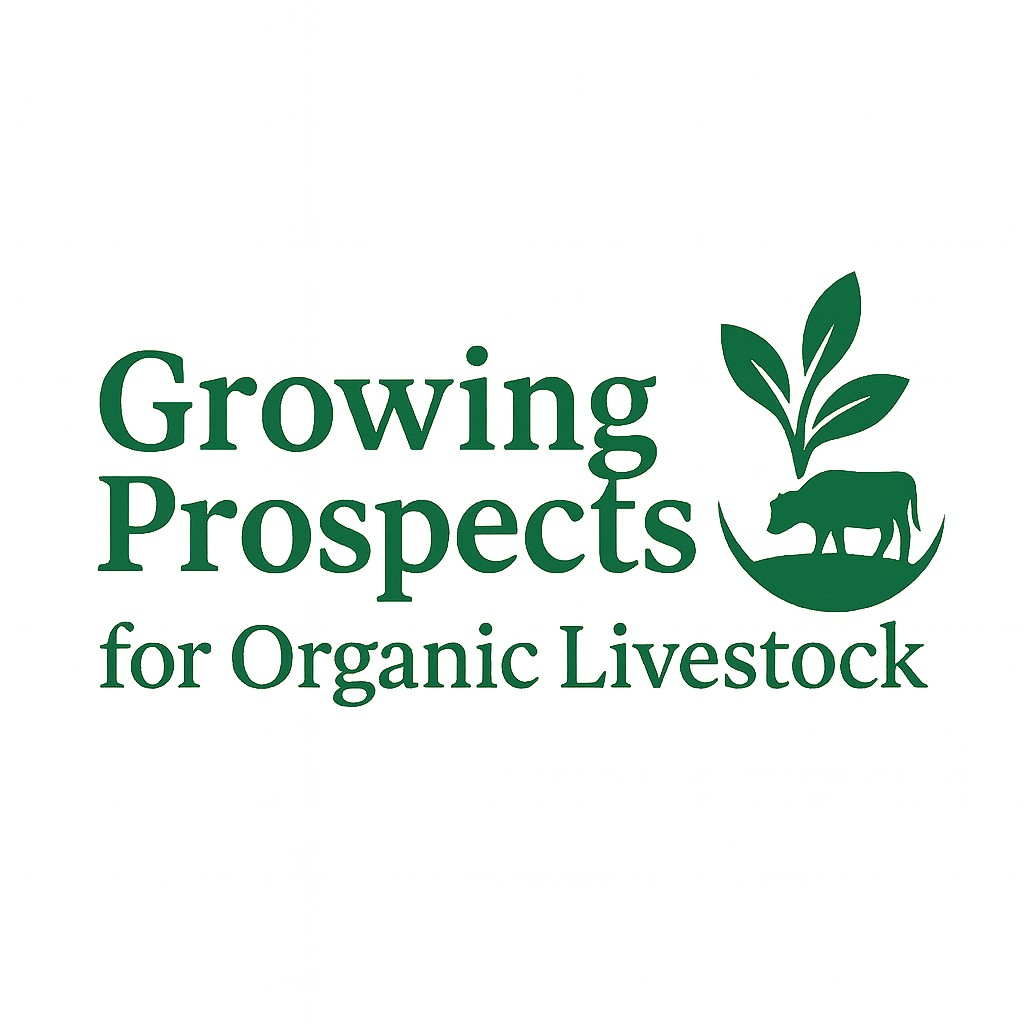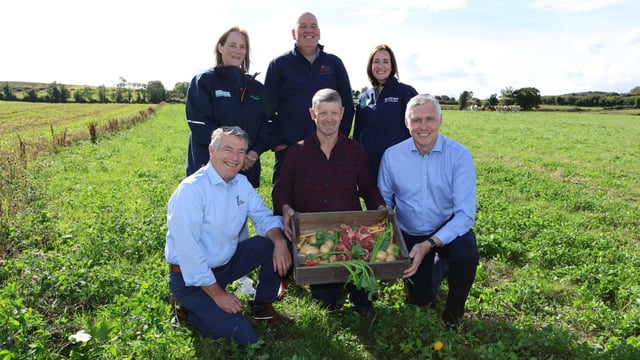Dairy advice: Minimising abomasal bloat in calves
As we get busier in calving season, health issues, such as abomasal bloat, can increasingly become a problem.
Clostridium bacteria or lactic acid generally produce the gas which cause this condition.
Bloat is a sporadic disorder in young calves and can affect either the abomasum or the rumen, but bloat of abomasum is more common in the case of younger calves.
Abomasal bloat can occur no matter the feeding technique, whether that is being fed with a bottle and teat, bucket, or on an automatic feeder.
Abomasal bloat or Acute Bloat Syndrome (ABS) occurs most commonly in calves aged from four to 21 days, and is caused mainly by poor hygiene, dirty bedding, and inaccurate feeding.
Calves in the early stages of their lives are essentially monogastric as all milk or milk replacer is digested in the abomasum, which makes abomasal function critical at this stage of life.
While it may be difficult to determine the exact cause of abomasal bloat on farms, there are a few key areas that can help to prevent cases.
Always feed calves a minimum of three litres of quality colostrum within two hours of birth, and a further three litres within 12 hours. This is essential for calves to receive their antibodies.
Care is needed when stomach tubing as incorrect use of a stomach tube can damage the vagal nerve, which is responsible for abomasal motility.
Ensure that the feeding equipment and teats are in good condition and kept clean. Teats should be changed on the feeders regularly, especially when using an automatic calf feeder.
Irregular volumes of milk can cause issues as large milk volume takes longer to empty from the abomasum, giving bacteria moretime to ferment the milk, which can cause an excess of gas.
When mixing milk, the same protocol should be taken every time as calves love consistency. Total solids in the milk should be considered when feeding.
Osmolality, which refers to the solid content of milk or milk replacer as it flows through the abomasum, can also be an issue with young calves.
Anything that delays the flow of milk through the abomasum allows bacteria to multiply which increases the risk of bloat.
If clostridium perfringens bacteria is present, harmful toxins will be produced which can then damage the calf's organs.
Water intake is essential for calf rearing and for preventing bloat as low water intake will increase the osmolality of the milk being fed and slow the abomasal emptying rate.
Farmers should make sure there is plenty of access to the water trough and if there is a group of 20, Animal Health Ireland recommends two water drinkers in the pen.
Unfortunately, once a calf develops this form of bloat, it is often too late, so, preventing bloat requires a high level of hygiene in the calf shed and the calf feeding equipment.
It mainly requires consistency while feeding calves with the right amount of milk at the right temperature, well mixed, and at the same time twice a day.
If feeding with automatic feeders, make sure the feeders are calibrated regularly.
It is important for farmers to do the basics right this spring to prevent bloat or any infectious pressures in the shed.





